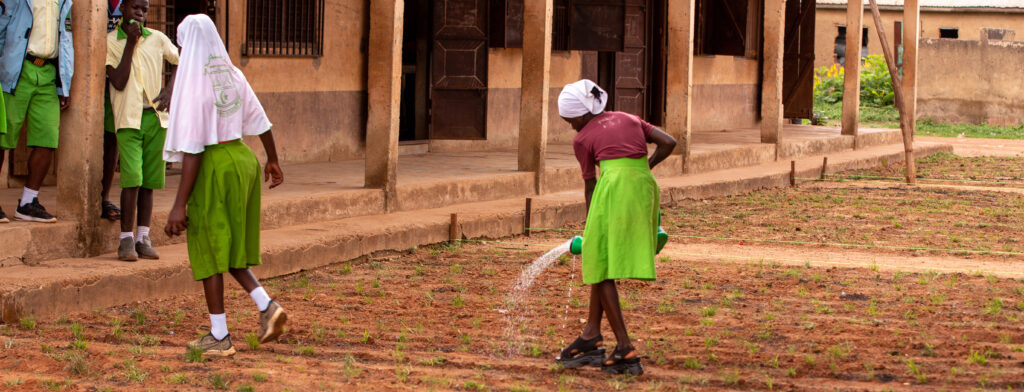
CLIMATE CHANGE ADAPTATION.
Over the years, especially in the past five years, climate change has severely impacted livelihoods in the Northern Region of Ghana, where agriculture remains the main source of income. Erratic and unpredictable rainfall patterns have caused both prolonged droughts and sudden floods, disrupting farming activities and reducing water availability. In 2024, these irregular weather patterns led to a widespread dry spell across the northern belt.
Rising temperatures have also worsened the situation. Higher heat levels have reduced soil moisture, particularly in areas around the Oti and Dakar rivers, making it harder to grow crops. This has contributed to desertification, food and water insecurity, and related health problems. These conditions triggered the outbreak of Cerebrospinal Meningitis (CSM) in the Upper West Region during the first quarter of 2025.
Savana Signatures’ Climate Response: The Green Schools Project
To help address these challenges in our operational areas, Savana Signatures, in partnership with the Ghana Education Service (GES), launched the School Gardening Initiative under the Green Schools Project. This initiative is active in selected schools within the Karaga and Sagnarigu districts.
As part of the project, we trained teachers in agro-metrics and effective agronomic practices to establish and manage school gardens. These gardens now grow a mix of edible and non-edible plants, including vegetables like tomatoes, okra, and ayoyo, as well as trees and ornamental plants.
Benefits of the Initiative
- The gardens help combat climate change by greening school environments and promoting sustainable agriculture.
- They provide practical learning spaces that deepen students’ understanding of climate change and environmental care.
- Students now have a platform to engage with climate issues that affect their education, health, and communities.
- The initiative beautifies school grounds, creating a calm, green environment that supports teaching and learning.
Overall, these school-based initiatives are improving the quality of education, promoting student well-being, and building climate resilience in northern Ghana.
